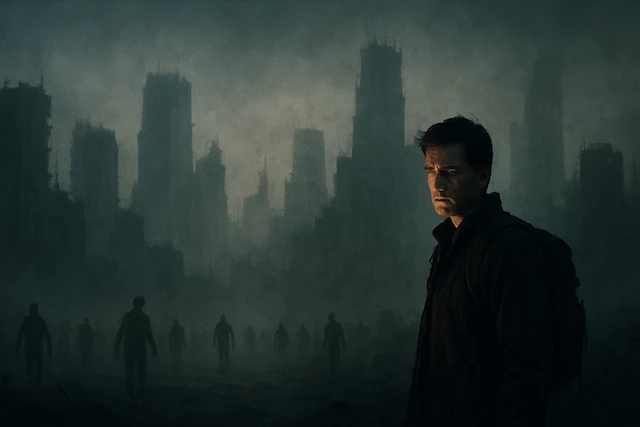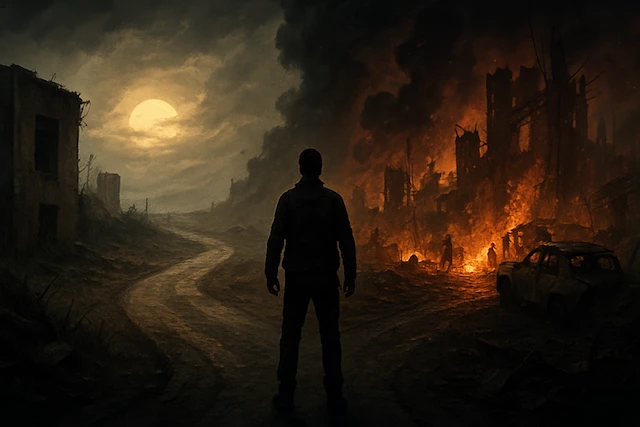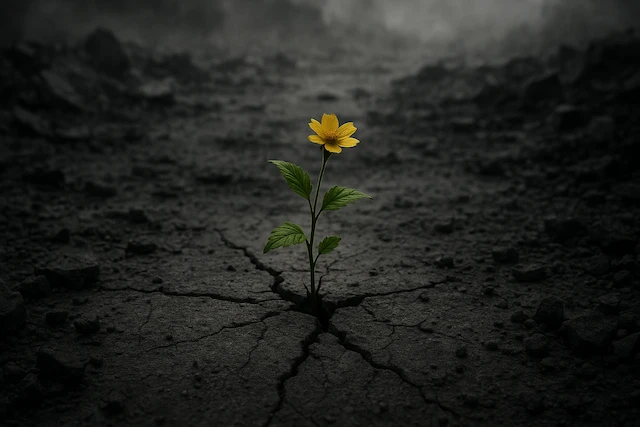Beyond the Bite: What Your Zombie Apocalypse Strategy Reveals About You

⚠️ Heads up! This post digs into the psychology behind our Zombie Apocalypse Survival Quiz. If you want the full experience without spoilers, go take the quiz first! Then come back and see what your answers really mean.
Okay, confession time: I've been deep in the zombie rabbit hole lately. Not in a "building a bunker" kind of way, but more like "staying up way too late playing No More Room In Hell 2 and having intense debates with myself about whether I'd actually share my last bottle of infection-delaying pills with a total stranger." You know, just standard evening stuff.
What started as pure escapism got way more interesting when I noticed these zombie scenarios kept challenging my morality. When the world as we know it falls apart, you're suddenly facing some tough questions about the person you'd become when only survival matters.
That's when I thought, "Okay, I have to turn this into a quiz."
Why Zombies Are Basically Just Psychology Tests in Disguise

There's something strangely perfect about apocalypse settings for seeing what people are really like underneath all the polite small talk. Your average personality quiz might ask "Do you prefer working alone or with others?" But zombie survival questions cut right to the chase. You're wrestling with core values under pressure, like whether to help those starving and defenseless children, knowing it might put you and your group in danger.
It reminded me of those classic ethical brain-teasers psychologists use, like the trolley problem where you have to choose who gets run over. The zombie apocalypse is basically that, but with more running, screaming, and, well, zombies. And honestly, it's way more fun to think through.
Beyond Just Being Ruthless: The Psychology This Quiz Pokes At
While building the questions, I realized the quiz wasn't just about how willing you are to be manipulative (though yeah, there's definitely a bit of Machiavellian thinking in there, especially in questions about resources and power). It really taps into a few key psychological ideas:
Moral Flexibility
This is a big one. The quiz constantly puts you in situations where doing the "right" or "nice" thing could get you killed (like helping strangers or trusting a bitten friend). It's testing how willing you are to bend your usual rules when survival is on the line. Can you make the hard, pragmatic choices, even if they feel wrong?
Risk Tolerance & Decision Speed
Do you freeze, rush in, or make a calculated move? The quiz looks at how you handle pressure. Waiting too long, acting purely emotionally, or blindly following old rules (like the boss telling you to stay put) usually leads to trouble. Surviving means quickly assessing risk and acting decisively, often favoring self-reliance or strategic maneuvering over direct confrontation or reckless altruism.
Group Dynamics and Trust
Who do you protect? Who do you abandon? Do you see other survivors as allies or threats? The quiz throws in scenarios about helping families, integrating smaller groups, dealing with hoarders, and facing larger, hostile groups. It explores that tribal instinct that kicks in during crises and how you navigate loyalty, betrayal, and cooperation when resources are scarce and you're surrounded by danger.
Resource Management Under Scarcity
When there's not enough for everyone (food, medicine, shelter), how do you behave? Do you share, steal, trade, or hoard? Questions about the pharmacy, the elderly survivor's backpack, or winter supplies test your approach to survival economics and how far you'll go when need outweighs empathy.
The quiz basically measures your blend of these things, pushing you to choose between compassion, rigid ethics, instinct, and cold strategy.
How I Figured Out Who Lives and Who... Doesn't
The quiz uses a simple point system where more points equal surviving longer. I did a good chunk of digging into disaster psychology and real survival stories (the non-zombie kind!) to make sure the scoring felt grounded in what actually tends to predict survival in extreme, high-stress situations.
The points for each question basically reflect decisions that tend to increase your odds: avoiding unnecessary risks, prioritizing essential resources, making difficult but necessary choices quickly, and being adaptable.
So, low points usually come from purely emotional or overly trusting choices, while higher points reward strategic, pragmatic, and sometimes pretty ruthless actions.
What Your Score Actually Tells You

Here's the cool part: how long you'd survive zombies isn't really about zombies at all. It's a peek at your moral flexibility, how you handle intense stress, how you weigh personal safety against helping others, and whether you can think strategically under such conditions.
A high score (you'd last) suggests you're likely pragmatic, good at managing emotions under pressure, and can adapt your principles if needed to survive. A low score (quick exit) probably means you're more empathetic, you stick to your values even when it's hard, and you'd likely prioritize helping others or following rules, even if it costs you.
Neither is "better," they're just different ways people are wired to handle extreme situations. The person who "dies fast" might be the best friend you could ask for in normal times. The person who "survives forever" might be exactly who you want leading the charge when the world ends.
That Awkward Moment When the Quiz Holds Up a Mirror
What makes this quiz hit a little different is how it forces you to see the gap between the person you hope you are and the person you might actually be under pressure. A lot of us like to think we'd be the hero, always doing the "right thing." But when faced with specific, brutal choices where the "right" thing gets you eaten, you start to see where your real boundaries might be.
The most interesting results, I think, are often in the middle, people who are practical enough to make tough calls but still feel the weight of them. Those are the folks wrestling with the real tension between staying alive and holding onto their humanity.
Why We Can't Stop Thinking About the End of the World

I figure our whole cultural fascination with the apocalypse (and why quizzes like this resonate) taps into this basic human wonder: Who would I be if everything changed overnight? What am I actually capable of if the world as I know it just... vanished?
These scenarios give us a safe way to poke at those darker thoughts. We can imagine ourselves making cold, calculated decisions and ponder the person stress might turn us into all while chilling safely on the couch, maybe with a bowl of popcorn.
Your quiz result becomes this weird little psychological mirror, showing not just your zombie plan, but how you balance looking out for number one with caring about others, how you make tough calls under pressure, and whether you see other people as potential allies or competitors when resources get tight.
The Real Survival Skill Nobody Talks About
After getting way too deep into the psychology behind this quiz, I landed on something: the most crucial survival skill isn't knowing how to aim a shotgun or build a sweet barricade. It's knowing yourself. Understanding how your own morals might shift, how you react when stressed, and what your default decision-making looks like when everything's on the line.
Whether your result says you're a quickly-eaten good soul or a long-surviving strategic mastermind, understanding your psychological leanings is way more useful than just figuring out your zombie plan. It helps you navigate pretty much any high-pressure situation.
And honestly? That's a skill that comes in handy even when the only monsters are deadlines or difficult people.